Around 200 million industrial workers, employees, farmers and agricultural laborers observed a two-day general strike in India on March 28 and 29. The strike was working people’s challenge to the far-right government of Prime Minister Narendra Modi. This video was created by People’s Dispatch.
Related Articles
Related Articles
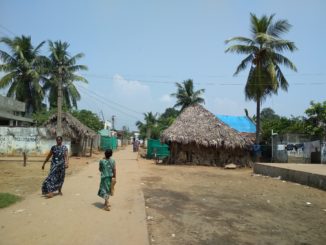
Developing Countries Keep Their Eyes on Ensuring Wealthy Countries Cover Climate Losses and Damages
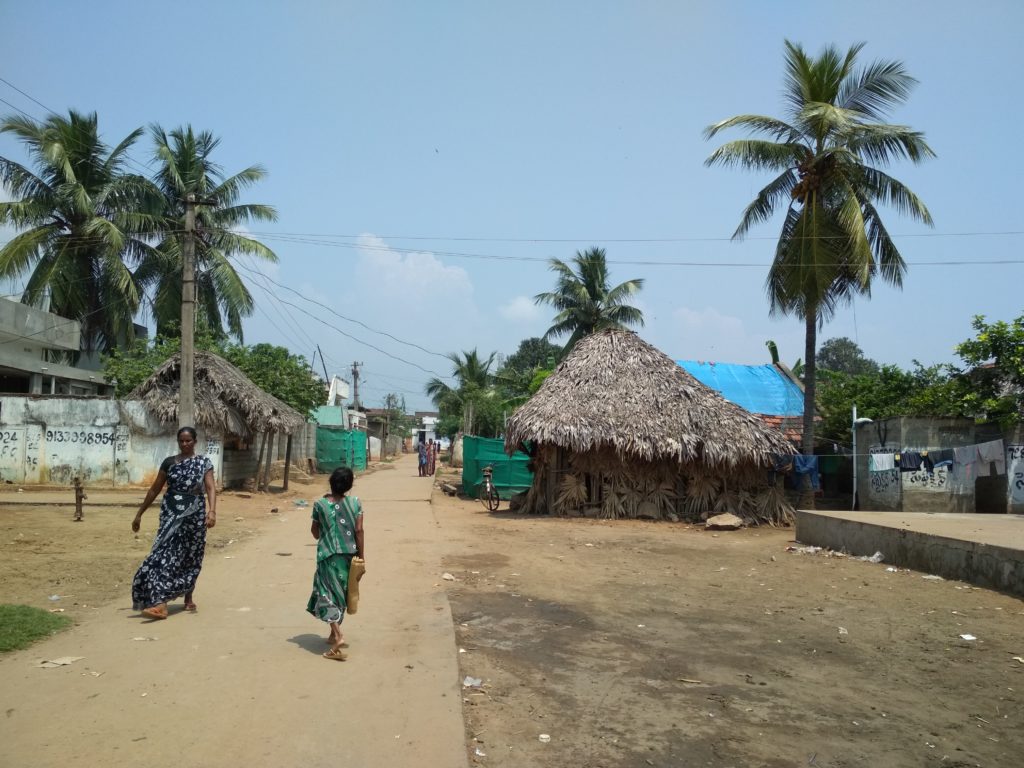
What left many grumbling at the 26th meeting of the Conference of Parties (COP26) held in November in Glasgow was rich countries like the United States and those in the European Union striking down the Glasgow Loss and Damage Facility, a body created to address how to compensate developing countries for climate change-related losses and damages. Wealthy countries have been found to be most responsible for causing the climate crisis and face litigation as well as ensuing liabilities and payouts.
But the demand to recognize loss and damage remains alive. A good indication being many climate-vulnerable developing countries have referenced loss and damage in their Nationally Determined Contributions (NDCs). Under the 2015 Paris Agreement, countries are required to submit NDCs to detail their national action to address global climate change, including steps to adapt to a changing climate and the form of financial assistance needed to undertake such action.

Small-Income and Developing Countries Hard Hit
A report published in October, 2021 found one-third of the 250 NDCs that were analyzed explicitly mentioned loss and damage. Most were from small-island developing states and least developed countries in the Asia-Pacific, Latin America and the Caribbean. The report was supported by the European Research Council’s Politics of Climate Change Loss and Damage (CCLAD) project.
“NDCs are political documents and not just technical submissions [under the Paris Agreement],” said Elisa Calliari, a co-author of the report.
Developed countries tend to focus on mitigation action, like the deployment of renewable energy. But that hasn’t been the case for the majority of the world’s states.
“Developing countries have pushed hard for the inclusion of adaptation in NDCs because, for them, this is more of a priority than mitigation,” Calliari pointed out. “So you can see the politics.”
For people living in an island nation like Sri Lanka, “key loss and damage impacts are felt in food systems and other vulnerable sectors, like the coastal and marine sector and water resources. These impacts have already resulted in migration interlinked with or induced by climate change among vulnerable communities,” said Vositha Wijenayake, executive director of the SLYCAN Trust, a non-profit think tank working in Asia, Africa and Europe. Its work focuses on climate change, biodiversity and ecosystems, sustainable development, and social justice.
Sri Lanka is classified as a lower-middle income/developing country. Given that it is also an island, its exposure to climate-related risks is high. These two factors make it extremely vulnerable to climate impacts and the ability to withstand them.
So, Wijenayake added, it is important for countries most vulnerable to climate change that loss and damage is a “key component” in addressing climate change processes, both negotiations and climate action. And this is why Sri Lanka was among the first countries to have a separate section allocated to loss and damage commitments included in its first NDCs submitted in September 2016. Building on this, the updated NDC of Sri Lanka submitted last July includes a separate section on loss and damage.
Interestingly, the report says upper-income countries like Costa Rica, Chile and Uruguay also have cited loss and damage in their NDCs.
And outside of NDCs, many developing countries have explicitly stated loss- and damage-related demands. For instance, consider India’s environment ministry laying out ahead of COP26, “There should be a compensation for expenses incurred, and it should be borne by developed nations.”
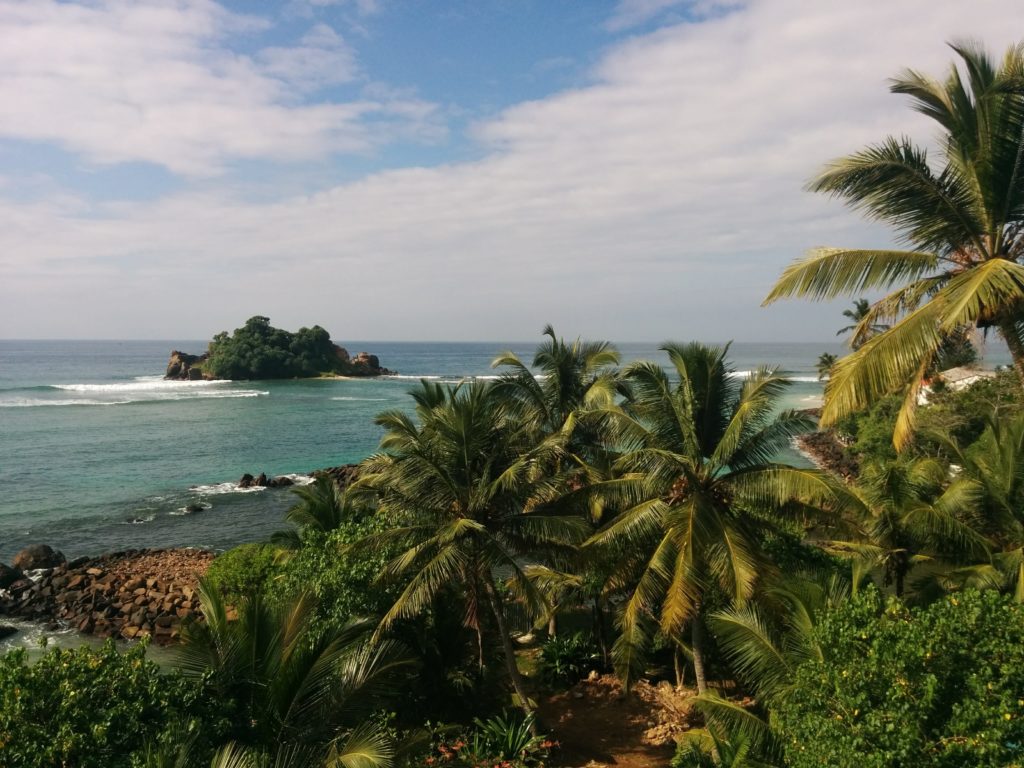
How to Fund Loss and Damage
A question that usually rears its head with respect to addressing loss and damage is how to “operationalize” it, or what processes and institutions could be set up at the global and national levels to address loss and damage.
“[One way would be] to look at NDCs for a bottom-up approach to understand how countries themselves are looking at loss and damage,” Calliari said.
Of the NDCs that explicitly mention loss and damage, around half specify loss- and damage-related responses and initiatives like data gathering, analysis and assessment, and institutional capacities to address loss and damage. For example, Sri Lanka’s NDC has a whole section on loss and damage. It mentions strengthening its weather and climate forecasting systems, plus improving data management to record loss and damage. Meanwhile, Honduras’ NDC puts forth a “gender-responsive agricultural insurance mechanism for loss and damage.”
Wijenayake also stressed “inclusive and participatory processes,” in which the voices of those vulnerable to climate change are taken into account in the national and international policy-making processes. As is “ground-level implementation,” she added.
And so, country-specific NDCs could potentially be a good starting point to determine how to put mechanisms in place to address loss and damage on a global scale.
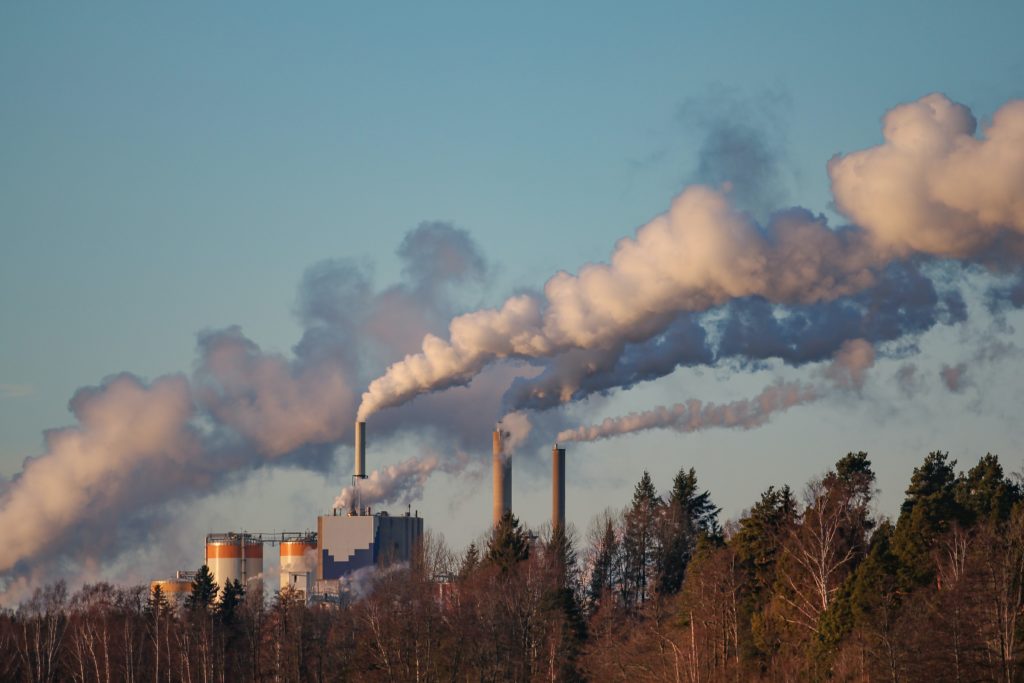
Getting Polluting Countries to Pay
The other gap that exists today is how finance can be mobilized to fund efforts that compensate for climate change-related loss and damage. A recent study by the Stockholm Environment Institute offers potential solutions.
The researchers propose finance should be provided based on the following:
- Solidarity,
- “polluter pays” principle that is based on “historical responsibility,” and
- the established notion of “common but differentiated responsibilities and respective capabilities” (or CBDR-RC, for short) under the United Nations Framework Convention on Climate Change (UNFCCC).
CBDR-RC means that while climate change is a shared concern, rich countries with a history of emitting carbon—like the United States and those in Europe—have a greater responsibility to take climate action than the poorer countries.
The “polluter pays” principle has only been used to hold fossil fuel companies accountable for environmental destruction. It implies more strict liabilities than “historical responsibilities,” which outlines broad principles based on past emissions.
The authors stress a combined approach that deploys the principles of solidarity, polluter pays and historical responsibility, as well as using the framework of CBDR-RC, to finance loss and damage.
A strictly liability-based approach would be “politically infeasible and communities cannot wait for years to prove the liability,” said Zoha Shawoo, an associate scientist at the Stockholm Environment Institute as well as one of the authors of the SEI report.
The research team also looked at methods of recovery and rehabilitation that communities would need after financing efforts to cover losses and damages. Those efforts can include planning the relocation of communities, assisting with migration and providing affected people with alternative livelihoods. Here, too, NDCs could help with granular details like national-level entities and processes that could assist local communities with issues like displacement and loss of livelihood.
Rishika Pardikar is a freelance journalist in Bangalore, India. She had reported for Toward Freedom from COP26 in Glasgow.
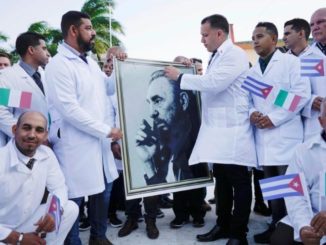
The United States Tries to Take Advantage of the Price Cubans Are Paying for the Blockade and the Pandemic
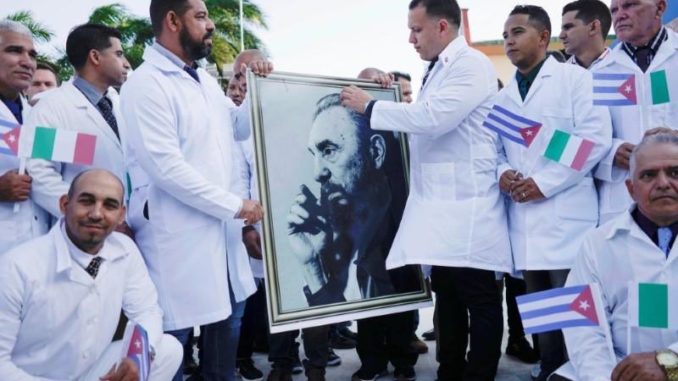
Cuba, like every other country on the planet, is struggling with the impact of COVID-19. This small island of 11 million people has created five vaccine candidates and sent its medical workers through the Henry Reeve International Medical Brigade to heal people around the world. Meanwhile, the United States hardens a cruel and illegal blockade of the island, a medieval siege that has been in place for six decades. In April 2020, seven United Nations special rapporteurs wrote an open letter to the United States government about the blockade. “In the pandemic emergency,” they wrote, “the lack of will of the U.S. government to suspend sanctions may lead to a higher risk of such suffering in Cuba and other countries targeted by its sanctions.” The special rapporteurs noted the “risks to the right to life, health and other critical rights of the most vulnerable sections of the Cuban population.”
On July 12, 2021, Cuba’s President Miguel Díaz-Canel told a press conference that Cuba is facing serious shortages of food and medicine. “What is the origin of all these issues?” he asked. The answer, he said, “is the blockade.” If the U.S.-imposed blockade ended, many of the great challenges facing Cuba would lift. Of course, there are other challenges, such as the collapse of the crucial tourism sector due to the pandemic. Both problems—the pandemic and the blockade—have increased the challenges for the Cuban people. The pandemic is a problem that people all over the world now face; the U.S.-imposed blockade is a problem unique to Cuba (as well as about 30 other countries struck by unilateral U.S. sanctions).
Origin of the Protests
On July 11, people in several parts of Cuba—such as San Antonio de los Baños—took to the streets to protest the social crisis. Frustration about the lack of goods in shops and an uptick in COVID-19 infections seemed to motivate the protests. President Díaz-Canel said of the people that most of them are “dissatisfied,” but that their dissatisfaction is fueled by “confusion, misunderstandings, lack of information and the desire to express a particular situation.”
On the morning of July 12, U.S. President Joe Biden hastily put out a statement that reeked of hypocrisy. “We stand with the Cuban people,” Biden said, “and their clarion call for freedom.” If the U.S. government actually cared about the Cuban people, then the Biden administration would at the very least withdraw the 243 unilateral coercive measures implemented by the presidency of Donald Trump before he left office in January 2021; Biden—contrary to his own campaign promises—has not started the process to reverse Trump’s designation of Cuba as a “state sponsor of terrorism.” On March 9, 2021, Biden’s spokesperson Jen Psaki said, “A Cuba policy shift is not currently among President Biden’s top priorities.” Rather, the Trump “maximum pressure” policy intended to overthrow the Cuban government remains intact.
The United States has a six-decade history of trying to overthrow the Cuban government, including using assassinations and invasions as policy. In recent years, the U.S. government has increased its financial support of people inside Cuba and in the Cuban émigré community in Miami, Florida; some of this money comes directly from the National Endowment for Democracy and from USAID. Their mandate is to accelerate any dissatisfaction inside Cuba into a political challenge to the Cuban Revolution.
On June 23, Cuba’s Foreign Minister Bruno Rodríguez said that the Trump “measures remain very much in place.” They shape the “conduct of the current U.S. administration precisely during the months in which Cuba has experienced the highest infection rates, the highest death toll and a higher economic cost associated with the COVID-19 pandemic.”
Costs of the Pandemic
On July 12, Alejandro Gil Fernández, Cuba’s minister of economy and planning, told the press about the expenses of the pandemic. In 2020, he said, the government spent $102 million on reagents, medical equipment, protective equipment and other material; in the first half of 2021, the government spent $82 million on these kinds of materials. This is money that Cuba did not anticipate spending—money that it does not have as a consequence of the collapsed tourism sector.
“We have not spared resources to face COVID-19,” Fernández said. Those with COVID-19 are put in hospitals, where their treatment costs the country $180 per day; if the patient needs intensive care, the cost per day is $550. “No one is charged a penny for their treatment,” Fernández reported.
The socialist government in Cuba shoulders the responsibility of medical care and of social insurance. Despite the severe challenges to the economy, the government guarantees salaries, purchases medicines and distributes food as well as electricity and piped water. That is the reason why the government added $2.4 billion to its already considerable debt overhang. In June, Cuba’s Deputy Prime Minister Ricardo Cabrisas Ruíz met with French Minister of Economy and Finance Bruno Le Maire to discuss the economic consequences of the COVID-19 pandemic. France, which manages Cuba’s debt to the public creditors in the Paris Club, led the effort to ameliorate the debt servicing demands on Havana.
Costs of the Blockade
On June 23, 184 countries in the UN General Assembly voted to end the U.S.-imposed blockade on Cuba. During the discussion over the vote, Cuba’s Foreign Minister Rodríguez reported that between April 2019 and December 2020, the government lost $9.1 billion due to the blockade ($436 million per month). “At current prices,” he said, “the accumulated damages in six decades amount to over $147.8 billion, and against the price of gold, it amounts to over $1.3 trillion.”
If the blockade were to be lifted, Cuba would be able to fix its great financial challenges and use the resources to pivot away from its reliance upon tourism. “We stand with the Cuban people,” says Biden; in Havana, the phrase is heard differently, since it sounds like Biden is saying, “We stand on the Cuban people.”
Cuba’s Prime Minister Manuel Marrero Cruz said that those who took to the streets on July 11 “called for foreign intervention and said that the [Cuban] Revolution was falling. They will never enjoy that hope,” he said. In response to those anti-government protests, the streets of Cuba filled with tens of thousands of people who carried Cuban flags and the flags of the Cuban Revolution’s 26th of July Movement. Cruz said, “The people responded and defended the revolution.”
This article was produced by Globetrotter.
Manolo De Los Santos is a researcher and a political activist. For 10 years, he worked in the organization of solidarity and education programs to challenge the United States’ regime of illegal sanctions and blockades. Based out of Cuba for many years, Manolo has worked toward building international networks of people’s movements and organizations. In 2018, he became the founding director of the People’s Forum in New York City, a movement incubator for working-class communities to build unity across historic lines of division at home and abroad. He also collaborates as a researcher with Tricontinental: Institute for Social Research and is a Globetrotter/Peoples Dispatch fellow.
Vijay Prashad is an Indian historian, editor and journalist. He is a writing fellow and chief correspondent at Globetrotter. He is the chief editor of LeftWord Books and the director of Tricontinental: Institute for Social Research. He is a senior non-resident fellow at Chongyang Institute for Financial Studies, Renmin University of China. He has written more than 20 books, including The Darker Nations and The Poorer Nations. His latest book is Washington Bullets, with an introduction by Evo Morales Ayma.

What Climate Finance Means for the Global South in the Run-up to COP26

Last month, U.S. Special Presidential Envoy for Climate John Kerry visited India in an effort to bolster the United States’ bilateral and multilateral climate efforts ahead of the 26th Conference of Parties (COP26), which will be held in Glasgow in just a few weeks. Countries that signed the United Nations Framework Convention on Climate Change (UNFCCC) will attend the conference to deliberate as well as negotiate actions needed to combat the climate crisis.
Kerry’s visit to India also marked the launch of Climate Action and Finance Mobilization Dialogue (CAFMD). CAFMD is part of the U.S.-India Agenda 2030 Partnership Indian Prime Minister Narendra Modi and U.S. President Joe Biden announced in April at the Leaders Summit on Climate. The talks took place within the context of India’s membership within an alliance colloquially referred to as “The Quad.” The alliance comprises Australia, Japan, India and the United States, and is aimed at countering a growing China in the Indo-Pacific region.
Soon after Kerry’s visit to India, Quad leaders met at the White House for discussions on a host of issues, including climate change. They agreed to work on climate targets aimed at 2030 and pursue enhanced actions in the 2020s.
But what tools are available to India—and other developing countries—to support them as they face climate-change impacts like eroding coastlines and droughts? And how will such tools be made available?
Mobilizing finance is considered key to helping developing countries meet their emission-reduction targets and adapt to climate-change impacts. At COP15 in Copenhagen in 2009, developed countries committed to a goal of jointly mobilizing $100 billion per year by 2020 to address the needs of developing countries.
But while COP15 set a clear target of $100 billion, it allowed flexibility in terms of what forms of financial support qualify as climate finance. The Paris Agreement, the successor to the Copenhagen Accord, reiterated the $100 billion per year commitment, but it also allows a wide range of financial instruments.
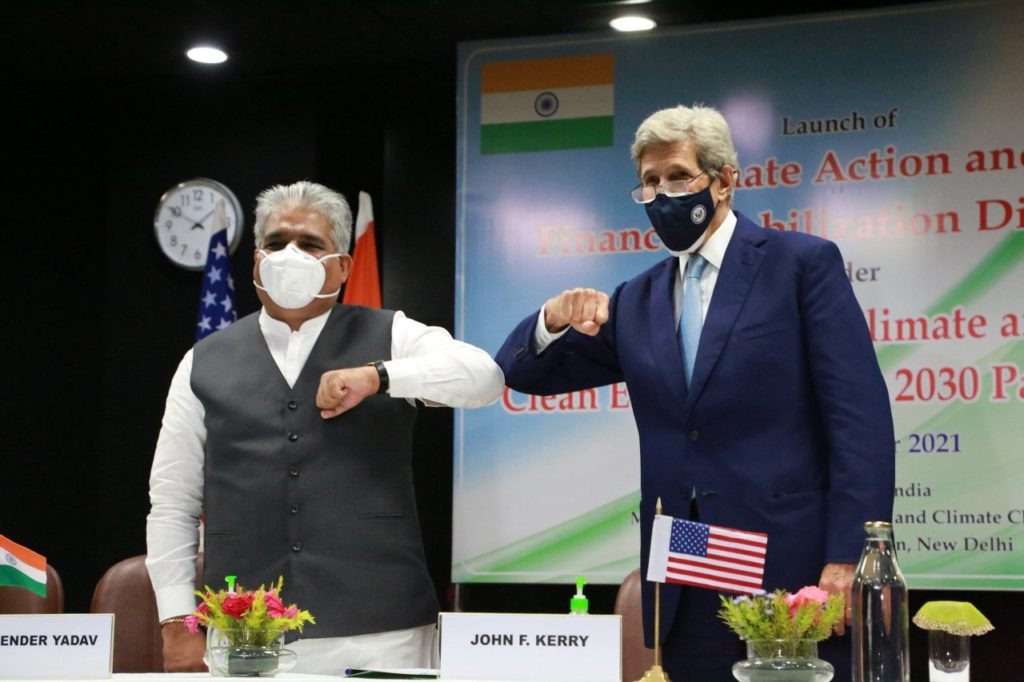
Developing Countries’ Perspective
Developed and developing countries have different perspectives on climate finance. Chandra Bhushan, a public policy expert and founder/CEO of International Forum for Environment, Sustainability & Technology (iFOREST), explained when developing countries speak of climate-finance requirements, they largely mean public grants from developed countries. But when developed countries talk about climate finance, they mean “everything from loans to grants to bilateral and multilateral funding,” Bhushan said.
Bilateral funding refers to financial support from one country to another. Multilateral funding involves agencies such as the World Bank, which derives its source of funding from multiple countries.
India’s official position on climate finance is only grants and grant-equivalent elements of other instruments, like loans and guarantees, ought to be recognized as climate finance. For example, in a recent interview to CarbonCopy, Rajni Ranjan Rashmi, a former principal negotiator for India at the UN climate change negotiations, said it is “logical” to include only the grant portion, or the concessional part, of the loans in the definition of climate finance.
Publicly available information about CAFMD does not reveal what exactly “financial mobilization” would entail. This reporter filed a Right to Information (RTI) request with the Ministry of Environment, Forests and Climate Change (MoEFCC) for minutes of meetings held between Kerry and the ministry. However, the request was denied.
Bhushan also expressed skepticism, noting how pre-COP launches of dialogues, like CAFMD, are not uncommon. But he said their progress is rarely tracked to ascertain achievements.

Unpacking “Finance Mobilization”
In general, “finance mobilization” can happen on both concessional and commercial terms. Arjun Dutt, program lead at Council on Energy, Environment and Water (CEEW) said concessional capital typically is channeled through grants and soft loans to market segments that are not commercially viable to catalyze investment. And as for finance on commercial terms, Dutt noted it typically flows into sectors that have achieved commercial viability and large-scale deployment, such as utility-scale renewable energy.
Elaborating on what India needs, Dutt said if the world wants India to decarbonize at an accelerated pace and commit to net-zero goals, the country “would likely require greater international [climate-finance] flows on both concessional and commercial terms.”
Through financial instruments such as guarantees, concessional capital could help lower the risk of loan defaults with new clean-energy technologies, which could catalyze more private-sector investments, Dutt explained. And as for commercial international capital, it would be needed because of the sheer scale of India’s decarbonization requirements.
Pays to note, in her meeting with Kerry, Indian Minister of Finance and Corporate Affairs Nirmala Sitaraman also underscored a need for enhanced climate finance for developing countries, or funding beyond the $100 billion commitment made at the Copenhagen summit.
Recently, even African nations called for a 10-fold increase to the $100 billion climate finance target.
Climate Finance’s Track Record
Developed countries have largely failed in fulfilling their climate finance obligations, a September 2021 report shows. Out of 23 developed countries that have a responsibility to provide climate finance, only Germany, Norway and Sweden have been paying their fair share of the annual $100 billion goal. More specifically, it states that the United States has the biggest shortfall in paying its fair share of climate finance, based on historical emissions and national income.
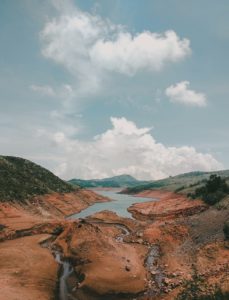
And closer examination of delivered climate finance reveals other issues. According to a report by Oxfam, the share of grants in global public climate finance was only 27 percent in 2019, whereas loans—both concessional and otherwise—totaled 71 percent. The remaining 2 percent comprised finance mobilized from private sources. Oxfam referred to this reliance on loans to fulfill climate-finance obligations “an overlooked scandal.”
Recently, a climate negotiator from a developing country, who anonymously wrote for The Guardian, pointed out how climate finance in the form of loans is creating a debt trap for countries in the Global South, where the COVID-19 pandemic has hit economies.
Interest rates on concessional loans are unequal, too. “The rate of interest in developed countries is around 2 percent and in India, it is around 14 percent,” said Bhushan of iFOREST. “So, if the United States gives a loan for 6 percent, will you consider it as a loan given on concessional terms?”
Funding Mitigation Versus Adaptation
Climate finance usually aids two solutions: Mitigation and adaptation. Mitigation refers to efforts aimed at reducing greenhouse-gas emissions like investments in renewable energy technologies or even making existing energy generation more efficient. Adaptation means remodeling and reorganizing society and the physical environment to address risks posed by climate change. Climate adaptation includes enhancing the resilience of coastal communities with nature-based solutions like restoration of mangroves and providing food security with climate-resilient agricultural practices.
Here, too, disparities exist between the needs of developing countries and what the developed world actually delivers.
Little doubt remains that climate change disproportionately impacts the Global South, given pre-existing conditions like food insecurity and lack of adequate healthcare. And so, countries in this region need as much financial support, if not more, for adaptation as they do for undertaking mitigation measures to arrest the global temperature rise. Even the Paris Agreement recognizes developing countries need equal amounts of funding towards mitigation and adaptation. But funding flows largely towards mitigation.
Oxfam points out 66 percent of global public climate finance supported mitigation while only 25 percent went toward adaptation. “Profitability drives the flow of money,” Dutt said, noting how climate finance goes toward mitigation efforts—like enhancing deployment in the renewable energy sector—and not to adaptation. But this is where public finance—or that which is provided by taxpayer money—can flow.
It also is unclear if developing countries have undertaken climate-change impact assessments and drafted clear policies aimed at mitigation, which could then be implemented using international climate financing.
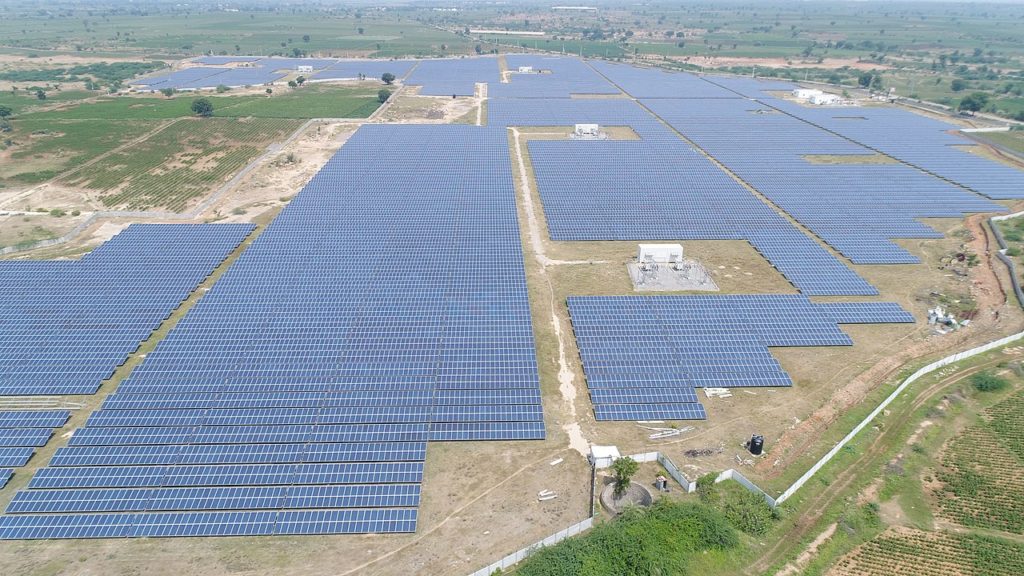
Developing Homegrown Climate Technology
Article 4.5 of the UNFCCC states developed countries have undertaken a commitment to
“take all practicable steps to promote, facilitate and finance, as appropriate, the transfer of, or access to environmentally sound technologies and knowledge to other Parties, particularly developing country Parties, to enable them to implement the provisions of the Convention.”
But little clarity is available on what “practicable” entails, what “as appropriate” means and what “environmentally sound technologies” encompass.
More rudimentary questions exist about whether developing countries like India need technology transfers.
“Renewable energy technologies like modules and inverters are produced at a mass scale across the world and even in India. These technologies are well-understood,” Dutt said. The only challenge, Dutt added, is India has not been able to produce renewable-energy equipment at globally competitive rates.
Expressing similar concerns, Bhushan spoke of how technologies like solar photovoltaic (PV) panels have hundreds of parts and algorithms that could have hundreds of intellectual property rights (IPRs). “Many of these IPRs are from developing countries themselves,” he noted. These IPRs are then packaged together and sold to companies to manufacture solar PV modules and panels. “Technology transfer is not like giving a formula to someone to produce a chemical. It is a combination of hundreds of formulas, many owned by Indians themselves,” Bhushan said. “The bottomline is, if you have money, you can buy whatever technology you want.” And so, the issue is not about freeing technology, like with the COVID-19 vaccines.
India has largely handled its own mitigation pathway because the country has access to renewable-energy technologies—both imported and domestically produced. Bhushan said talk of technology transfer is largely rhetoric without substantive demands detailing what exactly developing countries need.
Rishika Pardikar is a freelance journalist in Bangalore, India.
